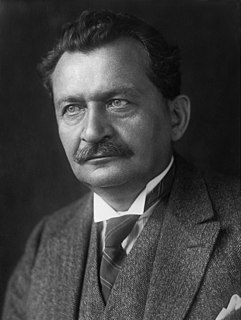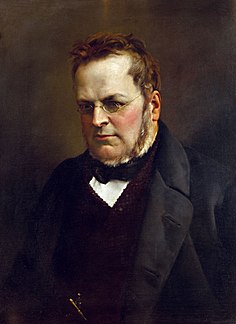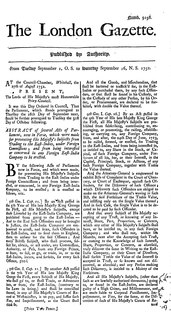
The first Federal elections were held in Germany on 3 March 1871. The National Liberal Party emerged as the largest party in the Reichstag, with 125 of the 382 seats. Voter turnout was just 52.0%.

Federal elections were held in Germany on 4 May 1924. The Reichstag had been dissolved on 13 March 1924. The Social Democratic Party remained the largest party in the Reichstag after winning 100 of the 472 seats. Voter turnout was 77.4%.
Elections to the Supreme Soviet were held in the Soviet Union on 12 March 1950.

Parliamentary elections were held in Bulgaria between 6 and 27 March 1938, the first after the 1934 coup. The elections were held on a non-partisan basis, with the Bulgarian Agrarian National Union and Bulgarian Communist Party banned. Pro-government candidates won a majority of seats. Voter turnout was 69.5%.
Parliamentary elections were held in Greece on 21 March 1868. Supporters of Alexandros Koumoundouros and Dimitrios Voulgaris won a majority of the 184 seats. Voulgaris remained Prime Minister, having assumed office on 6 February.

Parliamentary elections were held in Greece on 23 September 1879. Supporters of Alexandros Koumoundouros and Theodoros Deligiannis emerged as the largest bloc in Parliament, with 100 of the 207 seats. Koumoundouros remained Prime Minister until 22 March the following year.

Parliamentary elections were held in Greece on 26 March 1906. Supporters of Georgios Theotokis emerged as the largest bloc in Parliament, with between 112 and 114 of the 177 seats. Theotokis remained Prime Minister after the election, having originally assumed office on 21 December 1905.

Parliamentary elections were held in Hungary on 25 and 26 January 1920. However, they were only held in 164 districts. After the Treaty of Trianon was signed, the 44 districts previously occupied by Romania voted between 13 June and 5 July, whilst the 11 districts occupied by Serbia did not vote until 30 and 31 October 1921. The election was held with compulsory voting. In protest at this and other changes to the franchise that left 60% of the voting age population unable to vote, the Hungarian Social Democratic Party boycotted the elections, and called for its supporters to cast invalid votes, resulting in an unusually high number of blank or invalid votes - 11.8% in the January elections and over 20% in Budapest and other major cities.

Parliamentary elections were held in Hungary on 19 March 1967. The Hungarian Socialist Workers' Party was the only party to contest the elections, and won 259 of the 349 seats, with the remaining 90 going to independents selected by the party. Of the 349 constituencies, only nine had more than one candidate.

General elections were held in Italy on 27 January 1861, with a second round on 3 February. The newly elected Parliament first convened in Turin on 4 March 1861, where, thirteen days later, it declared the unification of the country as the Kingdom of Italy.

The 1874 Italian general election was held in Italy on 8 November, with a second round of voting on 15 November. They were a snap election, called by Prime Minister Marco Minghetti to strengthen his majority.

General elections were held in Liechtenstein on 11 March 1918, with a second round on 18 March. They were the first elections held in the country contested by political parties, as the Christian-Social People's Party and Progressive Citizens' Party had been founded that year. The Progressive Citizens' Party emerged as the largest in the Landtag, winning seven of the 12 elected seats.

General elections were held in Liechtenstein on 16 March 1930. The result was a victory for the ruling Progressive Citizens' Party, which won all 15 seats in the Landtag. The result led to a debate over the introduction of proportional representation, which took place in 1939.

General elections were held in Liechtenstein on 23 March 1958. The Progressive Citizens' Party won nine of the 15 seats in the Landtag, but remained in coalition with the Patriotic Union.

General elections were held in Liechtenstein on 25 March 1962. The Progressive Citizens' Party won eight of the 15 seats in the Landtag, but remained in coalition with the Patriotic Union. This was the first election contested by the Christian Social Party.

General elections were held in Portugal on 28 April 1918, following a coup by Sidónio Pais in December 1917. The elections were boycotted by the Democratic Party, the Evolutionist Party and the Republican Union, who had won over 90% of the seats in the 1915 elections.

Parliamentary elections were held in Romania on 2 March 1969. The Front of Socialist Unity, which had been formed a year earlier to replace the People's Democratic Front, was the only organization that contested the election; no prospective candidate could run for office without the Front's approval. Like the People's Democratic Front, the Front of Socialist Unity was dominated by the Romanian Communist Party. The Front won all 465 seats in the Great National Assembly.

Parliamentary elections were held in Romania on 9 March 1975. The Front of Socialist Unity, dominated by the Romanian Communist Party and including other mass organisations, was the only organisation that contested the election. No prospective candidate could run for office without the Front's approval. The Front won all 349 seats in the Great National Assembly.

Grand and General Council elections were held in San Marino on 25 March 1906.
Federal elections were held in Switzerland on 29 October 1939. The Free Democratic Party emerged as the largest party in the National Council, winning 49 of the 187 seats. Due to the outbreak of World War II, there were no elections in nine of the 25 cantons; Appenzell Ausserrhoden, Lucerne, Neuchâtel, Schwyz, Solothurn, Ticino, Valais, Vaud and Zug. In what became known as "silent elections", a total of 55 candidates were elected unopposed.




















